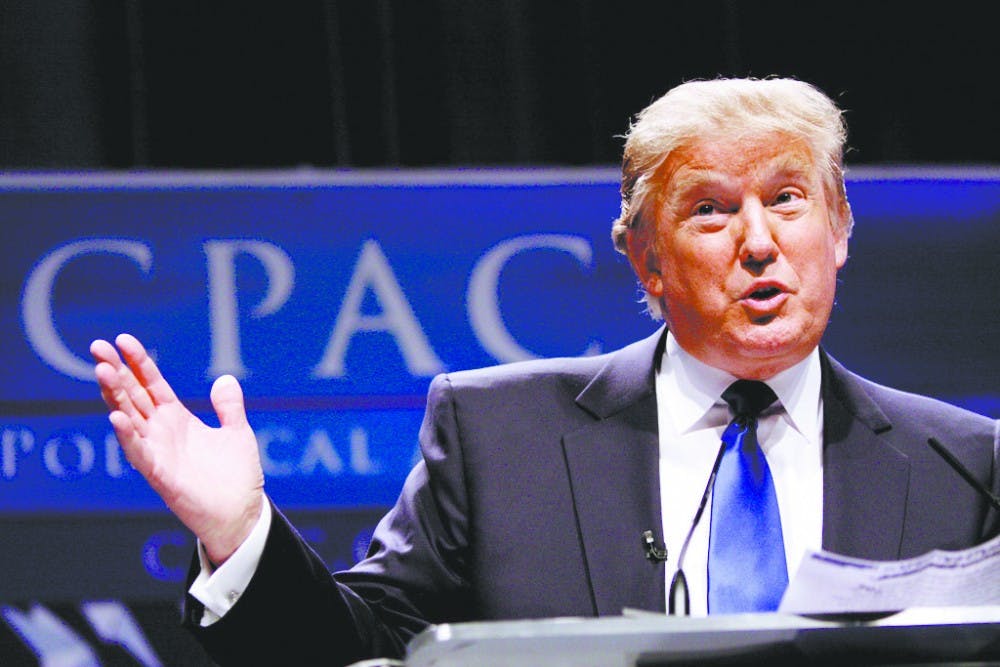By Wilson Alexander | Contributor
Donald Trump's win in the 2016 presidential election is a tremendous upset that has polarized America and the world. It also has the potential to significantly change some elements of U.S. foreign policy, especially relations with Mexico and Russia, trade policy and the war on ISIS.
Mexico
Trump's stance on immigration has been one of the most controversial issues of the campaign. His most well-known policy proposal is undoubtedly his plan to build a wall on the border with Mexico, which Mexico will supposedly pay for.
On his website, Trump explains that he will make this happen by preventing undocumented workers from sending money from the United States to Mexico. He touts the importance of this cash flow to the Mexican economy, stating, "There is no significant social safety net provided by the state of Mexico."
He also advocates canceling visas and increasing visa fees as alternative ways to force Mexico to pay for the wall. In addition to securing the southern border, Trump has promised to deport as many as 11 million undocumented immigrants, according to NBC.
The Washington Post has reported that while it may be difficult to construct the wall and carry out Deportation on the scale that Trump advocates, he could reverse several of the Obama administration's policies, such as refusing to protect those who, at a young age, were illegally brought into the United States.
Russia
Vladimir Putin and Russia have come under fire in the last few years for the country's expansion in eastern Europe and aggressive cyber policies, seen most vividly in hacks leading up to the U. S. election. Trump has spoken favorably of Russian President Vladimir Putin and has expressed a desire to foster positive relationships between the two countries.
Trump has also questioned the legitimacy of the North Atlantic Treaty Organization (NATO), an alliance of North American and European states created during the Cold War to contain the expansion of the Soviet Union. This caused a good deal of American allies to wring their hands, but Trump has since stated that he would stand by U.S. NATO commitments.
Former presidentsGeorge W. BushandBarack Obama both sought to improve relations with Russia and both failed, indicating the restoration process is far from simple. Further, Time Magazine points out that, in order to strengthen ties, Trump might need to make concessions regarding the recent Russian expansion, something that will not go over well with many leaders on both sides of the Atlantic.
Trade
Trump has often been an outspoken critic of the globalization of the world economy brought on by free trade deals, which he says have taken jobs away from the United States. He has frequently voiced opposition to deals such as the North American Free Trade Agreement (NAFTA) and the Trans-Pacific Partnership (TPP), as well as advocating tariffs on imported goods.
He has accused China, Mexico and other nations of taking advantage of the United States in recent trade deals, and has promised to negotiate better deals or pull out of current ones. This policy might express itself in the U.S. refusing to sign the TPP or a renegotiation of NAFTA, the latter would be more difficult but NPR's Marilyn Geewax, points out that Trump could "strangle" it by hassling corporations that have operations in Mexico and the United States.
Overall, Trump's trade policies could help some sectors of the United States economy but could hurt others. It is still unknown how the international community and economy will react to Trump's presidency-and if trade wars will break out over his radical policies.
ISIS
Trump has not divulged much of his plan to defeat the Islamic State (ISIS), hoping to use what he described in the last presidential debate as "the element of surprise" against the group. He has suggested different tactics at different times, from advocating torture and targeting families of terrorists (In March, Trump backtracked from these statements and promised to respect international law according to CNN) to potentially deploying troops.
On his website, Trump says he plans to work with the international community to defeat ISIS. He also proposes attacking ISIS' ideology by exposing the evils of their belief system. He advocates restricting immigration "from some of the most dangerous and volatile regions of the world that have a history of exporting terrorism," according to his website.
Another way that Trump is combatting the terrorist group is by using the phrase "radical Islam." Politifact reports that President Obama has avoided using this term in an attempt to discourage the view that Islam and the west are in conflict. However, Trump sees value in it, saying "If we want to protect the quality of life for all Americans . . . then we need to tell the truth about radical Islam," according to Politifact.
These are just some of the issues Trump has talked about addressing as president. As Max Boot of Foreign Policy points out, many of Trump's policies are not fully fleshed out, meaning that he could back away from some of his more radical proposals. However, if this election cycle has proven anything, it is to expect the unexpected.





